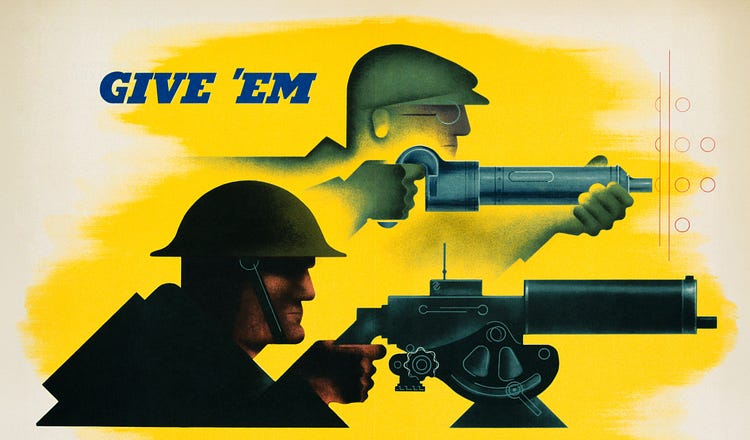Weekend Listening: The Real Team America

(Poster by Jean Carlu via Corbis/Getty Images)
Palmer Luckey, Katherine Boyle, and Joe Lonsdale on the defense tech they’re building to keep our country safe—and the threats that keep them up at night.
311
As scary as this period feels—between Russia’s war in Ukraine and Hamas’s war with Israel—there’s increasing concern that this is just the calm before the storm. Should China decide to move against Taiwan in some way, then we’ll have war with U.S. involvement in three separate regions. Or perhaps by then it will not seem like three separate wars, but a …
Continue Reading The Free Press
To support our journalism, and unlock all of our investigative stories and provocative commentary about the world as it actually is, subscribe below.
$8.33/month
Billed as $100 yearly
$10/month
Billed as $10 monthly
Already have an account?
Sign In


